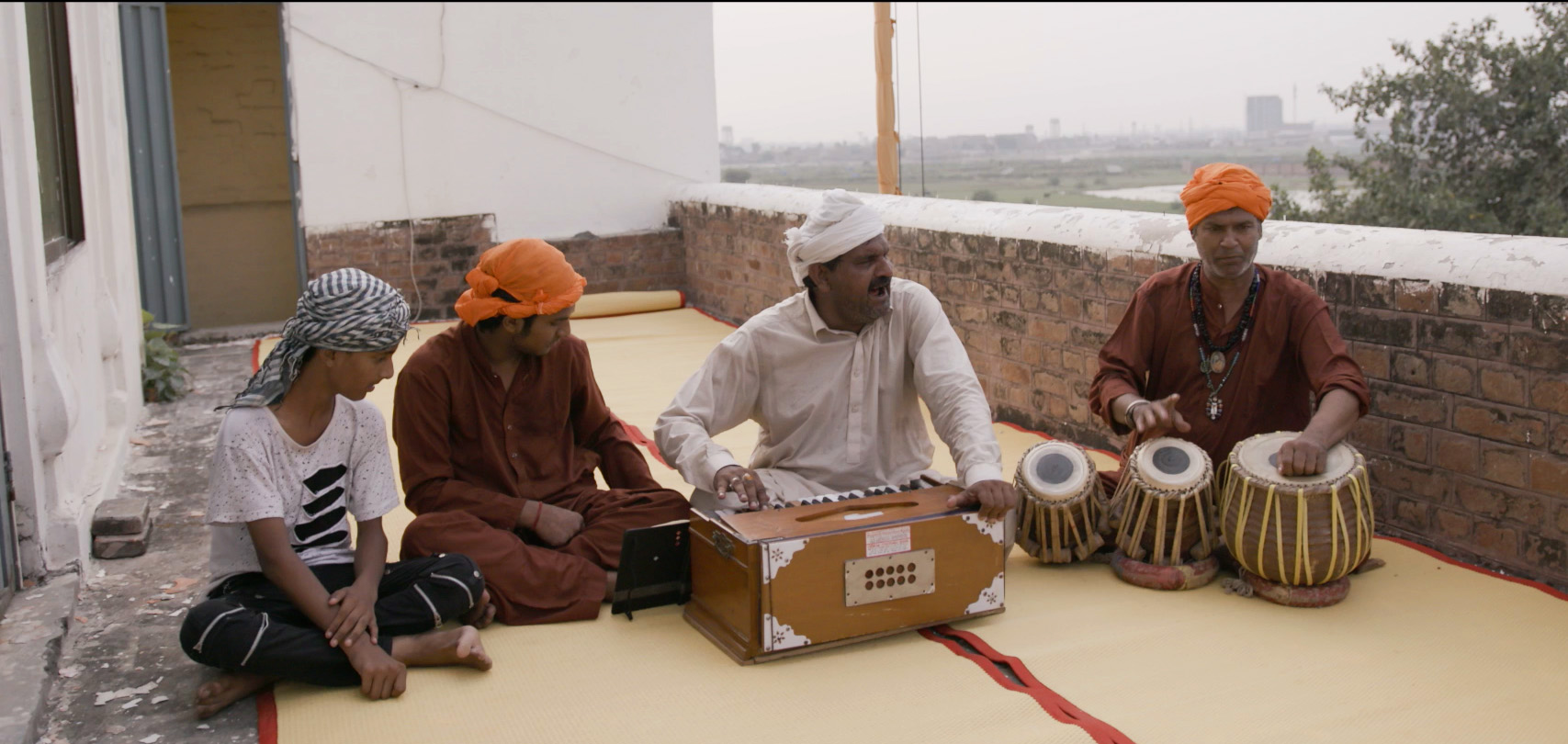The rababis are a community of musicians, now mostly resident in Pakistan, who trace their roots back more than five centuries to Bhai Mardana (1459-1534), a Muslim musician and disciple of Guru Nanak (1469-1539), founder of the Sikh religious community. Bhai Mardana accompanied and served the Guru his whole life as the pair travelled across South and Central Asia singing songs of divine wisdom and and awakening diverse audiences to the Oneness of the Creator and Creation.
“Mardana, the hereditary musician, wonderfully plays the Rabab, in the spiritual assembly [of the Guru]”
from the var of Bhai Gurdas (1551-1636)
In this vein and by virtue of an enduring association with the plucked instrument known as the rabab, the tradition of the rababis came in to being, whereby lineages of hereditary Muslim musician-devotees continued to serve the subsequent Sikh Gurus and their community of disciples by spreading the non-sectarian wisdom of great saints such as Kabir, Namdev, Farid and the Sikh Gurus, with their music.
“All through the day the worshippers flock to the Granth…the musicians are constantly in attendance, singing hymns to the rebeck and the lute. These are the Rababis, the descendants of the Muhammadan fakir, Mardana Mirasi of Merawat, who loved Nanak, and set his hymns to music nearly five hundred years ago.”
Edmund Candler, upon a visit to the Golden Temple in 1910.
This tradition endured over the centuries with the Golden Temple of Amritsar serving as one of its primary beacons. It was only following the rise of identity politics and religious reform in the late colonial period, that the rababis became estranged from their Sikh and Hindu brothers by the spread of new ideologies, emphasising outer religious differences rather than shared piety, thus resulting in their migration to Pakistan following the partition of Punjab in 1947.
Meet the Rababis featuring in our film
Today, despite the enduring separation of communities, and the obtrusive boundaries of nation and religious orthodoxy, the flame of spiritual wisdom and love that united Bhai Mardana with Guru Nanak, continues to burn in the hearts of the rababis of Pakistan, its light offering a glimpse of the beauty represented by their tradition.
Listen to Music of the Rababis
The musical excellence of the rababis has also left an enduring mark on the music industry in Pakistan, with some of the country’s most noted music directors, composers, instrumentalists and vocalists hailing from the rababi community.
Noted rababi musicians of twentieth-century Pakistan include:
- Rashid Attre (1919-1967) – Music Director
- Ustad Ghulam Hassan Shaggan (1928-2015) – Hindustani vocalist
- Ustad Abdul Sattar ‘Tari’ Khan (b.1953)- Tabla Maestro
- Wazir Ali & Muhammad Afzal aka Wazir-Afzal – Music Directors
- Tufail Farooqi (1916-1988) – Music Director
- Safdar Hussain (d.1989) – Music Director
- Hamid Ali Bela – Sufi Music Vocalist
- Sain Akhtar – Sufi Music Vocalist
